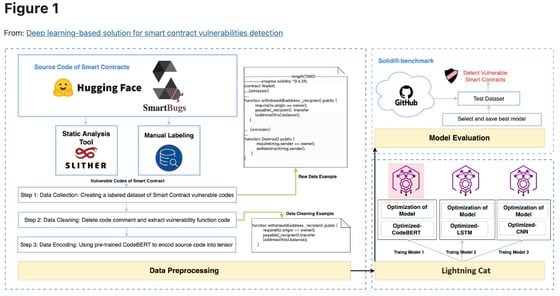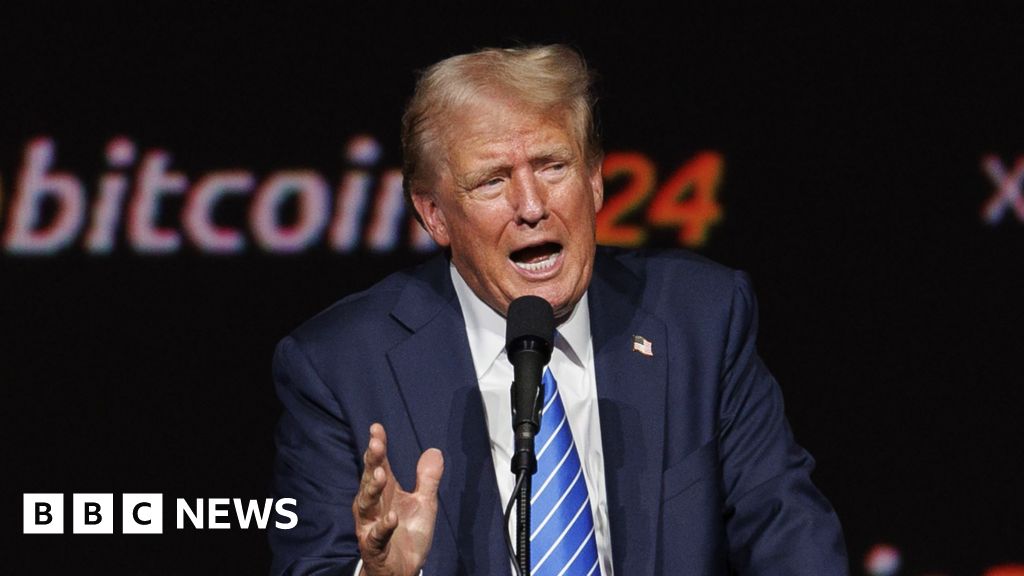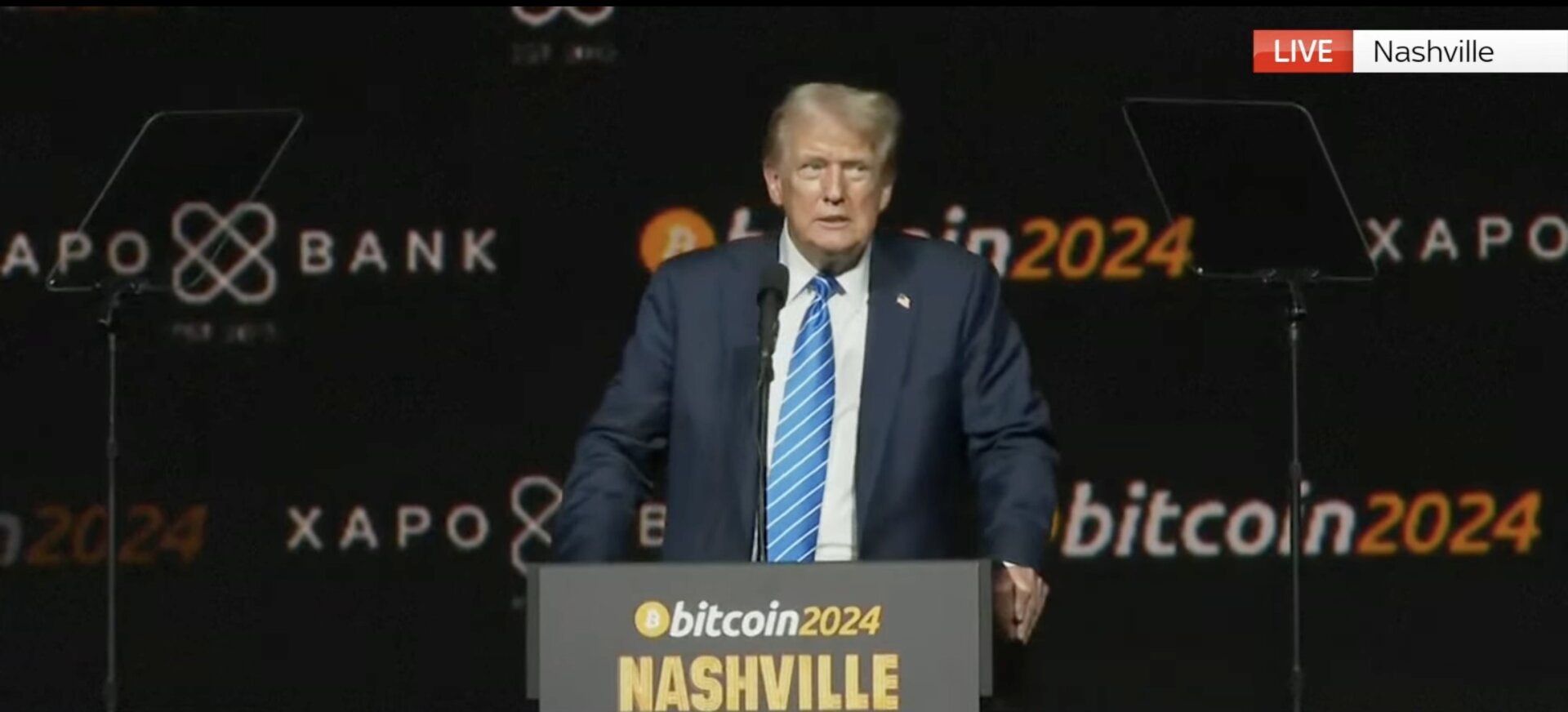Tech
The Latest Tech News in Crypto and Blockchain

Dec. 6: Spirit Blockchain Capital (SBC) closed its latest funding round, which included a significant investment from EOS Network Ventures (“ENV”), according to the team: “This collaboration isn’t just about funds — it’s about creating a strong, knowledge-driven partnership: ENV will have a board seat and play a key role in the company’s investment decisions, leveraging their expertise from a top Delegated PoS L1.”
Io.net Launches ‘Filecoin Storage Providers’
Dec. 6: Io.net, a distributed GPU computing platform for AI startups, announced today that it’s launching a new feature allowing Filecoin Storage Providers (SPs) to become GPU suppliers for the platform, according to the team. This initiative allows SPs to contribute their GPUs to resource-hungry machine learning, AI and advanced applications, opening up a new revenue stream for SPs, with 1,500 GPUs from SPs integrated into io.net‘s 17,000 GPU-strong platform. (FIL)
Protocol Village is a regular feature of The Protocol, our weekly newsletter exploring the tech behind crypto, one block at a time. Sign up here to get it in your inbox every Wednesday. Project teams can submit updates here. For previous versions of Protocol Village, please go here. Also please check out our weekly The Protocol podcast.
Tribal Finance Launches First Lending Pools
Dec. 6: Tribal Finance, an RWA protocol, launched its first lending pools, offering up to 14% yields and targeting SMEs in Latin America and the Middle East, according to the team. “Funded by $41M from SoftBank, Coinbase and Shima Capital, among others, it leverages blockchain to provide collateralized lending opportunities. It emphasizes legal compliance and includes features like tokenized legal frameworks and credit enhancements to ensure secure and transparent transactions.”
QANPlatform for Quantum Resistance Raises $15M from Qatar’s MBK
Dec. 5 (EXCLUSIVE): QANplatform, a layer-1 blockchain compatible with Ethereum’s EVM standard that says it’s quantum resistant, has signed a $15 million investment contract with MBK Holding, whose founder and chairman is Qatari Sheikh Mansoor Bin Khalifa Al-Thani, prior to its highly anticipated testnet launch, according to a press release. The blockchain uses “NIST Primary recommended post-quantum algorithm,” according to the release. “One of the unique features of QANplatform, besides rapid cloud deployment or quantum-resistant security, is its ability to support smart contracts in any programming language. The QAN Virtual Machine (QVM) allows developers to write smart contracts in any Linux-Kernel-compatible programming language (like: JavaScript, Java, Python, TypeScript, C, C++, C#, etc.).”
QANPlatform co-founder and CTO Johann Polecsak (left), with Qatari Sheikh Mansoor Bin Khalifa Al-Thani and QANPlatform CEO Jevgenia Kim. (QANPlatform)
Salus Security Officials Get Research Paper Published on Nature Website
Dec. 5: Team members of Salus, a Web3 security company, got a research paper published on the website of the journal Nature, in the “Scientific Reports” section. Titled, “Deep learning-based solution for smart contract vulnerabilities detection,” the report showcases how deep learning can detect code that’s vulnerable to exploits. “Using the CodeBERT pre-training model for data preprocessing, we could capture the syntax and semantics of the code more accurately. To demonstrate the feasibility of our proposed solution, we evaluate its performance using the SolidiFI-benchmark dataset, which consists of 9369 vulnerable contracts injected with vulnerabilities from seven different types,” the paper reads.
 Figure included in research paper published by the Salus authors. (Xueyan Tang, Yuying Du, Alan Lai, Ze Zhang and Lingzhi Shi, Nature’s Scientific Reports)
Figure included in research paper published by the Salus authors. (Xueyan Tang, Yuying Du, Alan Lai, Ze Zhang and Lingzhi Shi, Nature’s Scientific Reports)
Push Protocol Scaling Solution to Enable Web3 Platforms to Accommodate 5K Members
Dec. 5 (EXCLUSIVE): Push Protocol, the Web3 communication protocol, launched their scaling solution to enable Web3 platforms to accommodate over 5,000 members in a group chat, and will further extend this to +50,000 soon, according to the team: “The solution also incorporates native token/NFT gating capabilities. This means that group members automatically receive certain privileges based on the tokens or NFTs they hold in their wallet, resulting in a much smoother administrative process. For instance, a user who holds 100 $XYZ tokens can join the group chat, while a user with 1,000 $XYZ tokens will be able to send messages.”
TBD Introduces First Live Components of ‘tbDEX’
Dec. 5: TBD, a Bitcoin-focused unit of Jack Dorsey’s Block, has introduced the first live components of tbDEX, an open-source protocol allowing financial institutions to facilitate global transactions using verifiable credentials, according to a press release. Yellow Card, a crypto exchange in Africa, will be the first institution to use tbDEX, and will “offer individuals in 20 countries the convenience of receiving bitcoin or stablecoin payments directly in their local currency to withdraw from their bank accounts peer-to-peer payment apps or mobile money providers.”
Oasis Joins With Binance-Backed Gaming Hub NFTb for Sealed Bid Auctions
Dec. 5: Oasis, the privacy layer for Web3, announced that it has joined forces with NFTb, the Binance-backed multichain social gaming hub, to spearhead a new level of privacy for digital collectibles and gaming, according to the team: “With this, the pair will introduce first-of-its-kind technology, such as sealed bid auctions that prevent common issues in the NFT space like gas wars, frontrunning and poor price discovery, which overcomes limitations posted by Layer 1 networks like Ethereum.”
Web3Auth Announces Launch of SafeAuth
Dec. 5: Web3Auth, in partnership with Safe, announced the launch of SafeAuth, according to the team: “Simplifying onboarding with Account Abstraction has been a concept familiar to crypto industry, SafeAuth, leveraging the strengths of Web3Auth and Safe, enables users to swiftly create Safe Smart Account wallets. This is facilitated by social logins secured by MPC, eliminating the traditional need for seed phrases and significantly enhancing user convenience and security. SafeAuth ensures that each smart account, once created is attached to a social login, and can be portably accessed, much like an EOA (like Metamask).”
Neutron Acquires 25% of Software Company Known for CosmWasm
Dec. 5: Neutron, a secure cross-chain smart contract platform for DeFi, is entering a strategic collaboration with Confio, acquiring 25% of the software company known for developing CosmWasm, the leading virtual machine of the Cosmos ecosystem, according to the team: “This collaboration will drive adoption and technological improvements to CosmWasm including in key focus areas for Web3 such as zk-technology and privacy.”
Hashflow’s 2.0 Upgrade Brings Intent-Based ‘Smart Order Routing’
Dec. 5: Hashflow, a leading multichain decentralized finance (DeFi) trading platform, on Tuesday unveiled Hashflow 2.0, a fully upgraded experience with superior pricing, liquidity, and token availability, via its new intent-based “Smart Order Routing” (SOR) architecture, according to the team: “The upgrade will also include Hashflow’s first non-EVM chain deployment with inter and native cross-chain swaps available on Solana.”
IBM Introduces New Cold Storage Tech for Crypto Assets
Dec. 5: IBM has released a cryptographic signing technology for handling digital assets in cold storage, reducing the risk associated with manual procedures while keeping assets at arm’s-length from an internet connection. The tech giant said in a statement Tuesday that its IBM Hyper Protect Offline Signing Orchestrator (OSO) helps protect high-value transactions by offering additional security layers, including disconnected network operations, time-based security and electronic transaction approval by multiple stakeholders.
Fantom Launches ‘Sonic Labs’ Accelerator With Andre Cronje as Mentor
Dec. 4: The Fantom Foundation (“the Foundation”), the team supporting the development of the Fantom blockchain, today announced the launch of its Sonic Labs startup accelerator program to foster innovation within Fantom’s new Sonic technology stack and empower the next generation of Web3 founders with vital resources, guidance, and support, according to the team: “Through this accelerator program, the Foundation is identifying up to five projects to join Sonic Labs and receive grants from a pool of 1,000,000 FTM (~$294,000).” Developers can begin building their projects on Sonic starting on Friday, Dec. 15. (FTM)
Umee UX Chain Proposes Merger With Osmosis, to Form Cosmos-Based DeFi Hub
Dec. 4: The Umee UX chain, the largest Cosmos-based lending protocol, announces a proposed merger with Osmosis, the leading Cosmos DEX, to form a unified interchain DeFi hub, according to the team: “This proposed merger involves a code transition where the UX chain will reimplement its code base on Osmosis, enabling advanced features including spot margin trading, interchain flash loans, MEV markets, and more. The merging of UX’s product features onto the Osmosis chain signifies a dedication to the flexible functionalities that can be offered on an integrated DeFi Hub.” (ATOM) (OSMO) [UX]
Mantle Releases Liquid Staking Protocol, Expanding Beyond Layer-2 Operator
Dec. 4: Mantle has launched Mantle LSP to give users instant and sustainable yields tapped directly from Ethereum’s PoS validator network, according to the team: “Mantle LSP aims to maintain the highest sustainable core yield through the exploration of MEV and Treasury yield sharing, while ensuring the wide adoption of $mETH across a diverse range of Mantle L2 DeFi applications, core technology partners and centralized exchange partners. It utilizes a modern design that places an emphasis on the integrity of the ETH: $mETH process on L1, without added complexities from other PoS tokens and chains.”
Circle Launches Open-Source Protocols to Address On-Chain Theft and Illicit Finance
Dec. 4: Circle CEO Jeremy Allaire posted on X a whitepaper describing a “detailed Recoverable Token standard that enables transfers to be revoked through a variety of of configurations,” along with a separate whitepaper describing a “model for ‘R-Pools,’ which are effectively an insurance and liquidity model for Recoverable Tokens, enabling a holder of a Recoverable Token to redeem via an insurance pool.” The projects were developed in conjunction with Stanford’s Applied Cryptography Group, according to Allaire.
Standard Chartered-Backed Zodia Custody Joins Ripple-Owned Metaco’s Global Crypto Storage Network
Dec. 4: Zodia Custody, a cryptocurrency storage provider backed by Standard Chartered (STAN), is joining Ripple-owned custody specialist Metaco’s network, which is designed to handle the safekeeping and settlement of digital assets for institutions around the world, the firms said Monday.
Blast, Envisioned as Layer-2 With Yield, Now Hiring
Dec. 1: Blast, the Ethereum layer-2 project criticized (even by one of its own investors) for accepting deposits with the network launch still months away, is now apparently hiring. The project’s website lists two open positions for a “Senior DevOps Engineer” and a “Senior Protocol Engineer.” The initial deposit contract has now garnered more than $650 million, a higher total value locked or TVL than Solana.
 Screengrab from Blast job description for “Senior Protocol Engineer.” (Blast)
Screengrab from Blast job description for “Senior Protocol Engineer.” (Blast)
United Nations Development Programme to Launch ‘Algorand Blockchain Academy’
Dec. 1: The United National Development Programme is launching a blockchain academy in partnership with Algorand Foundation, according to a press release. “The Algorand Blockchain Academy will launch in 2024 and is designed to bolster UNDP staff capacity through education and training in blockchain technology and its practical applications for sustainable development.” Focus areas include financial inclusion, supply-chain transparency, real-world asset tokenization and digital identity. (ALGO)
Arbitrum Lands RARI’s New NFT-Focused Layer-3 Chain
Nov. 30: RARI Foundation, focused on NFT infrastructure, announced that it has used Arbitrum Orbit technology to create a new layer-3 chain, RARI Chain, and has just unveiled the test network. The project helps to guarantee creator royalties, taking a step further to build NFT infrastructure, according to the team: “Designed with creators and collectors in mind, the RARI Chain emerges as a key NFT infrastructure solution – an EVM-equivalent chain built on Arbitrum, designed to deliver a royalty-enforcing, high-speed, low-cost and developer-friendly network for creators, collectors, and builders. RARI Chain embeds royalties seamlessly on the node level, empowering creators with the freedom to create and fueling cross-market interoperability.”
Aragon Deploys on Layer-2 Arbitrum, After Previously Deploying on Polygon, Base
Nov. 30: Aragon has deployed its modular Aragon OSx DAO framework and no-code Aragon App on the layer-2 Arbitrum, opening the door for DAOs to interact with a thriving ecosystem of protocols, applications, and assets, according to the team: “Arbitrum’s rollup technology serves as a gateway to the largest layer-1 ecosystem – Ethereum – and Aragon’s user-friendly tech stack unlocks the mass adoption of DAO technology.” Aragon has already deployed on the layer 2s Polygon and Base. (ARB) (ANT)
American Cancer Society Running Quadratic Funding Round Using Gitcoin Grants Stack
Nov. 30: The American Cancer Society (ACS) is running a Quadratic Funding (QF) round using Gitcoin Grants Stack, with $75,000 in matching funds, according to the team: “Until Dec. 12, the ACS QF round will support multiple mission support programs across Patient Lodging, Health Equity, Cancer Screening and Cancer Research, aiming to bring DAO-driven grant allocation to the NGO sector. The ACS patient centered programming includes peer to peer support tools, assistance with travel and a place to stay during treatment, and providing educational materials on various types of cancer, treatment options and coping strategies.”
Provenance Blockchain Integrates With Leap Wallet
Nov. 30: Provenance Blockchain Foundation, focused on the regulated financial services industry, announced that Leap Wallet is now integrated with the Provenance Blockchain, according to the team: “The integration enables Leap as an option for managing and staking HASH, transferring assets, viewing and voting on proposals. Leap is an all-in-one wallet supporting 50+ Cosmos chains.”
Obligate Announces Deployment on Base, in Addition to Polygon
Nov. 30: Obligate, a pioneering on-chain debt capital markets platform, announces its deployment on Base, the Ethereum layer 2 incubated within Coinbase, according to the team: “This development marks the start of a new chapter for the institutional adoption of blockchain-native assets and on-chain capital markets through Obligate. By choosing to deploy on Base, Obligate is signifying its commitment to overcoming the unique challenges institutions face in on-chain capital markets.” Obligate is currently built and operating on Polygon.
Bastion Appoints Caroline Friedman as Chief Operating Officer
Nov. 30: Bastion, an enterprise-focused Web3 orchestrator, announced the appointment of Caroline Friedman as chief operating officer, after serving as head of operations since inception, according to the team: “Friedman will be responsible for managing the company’s compliance and regulatory matters, public policy, legal, people, and finance functions, ensuring that Bastion meets the highest standards of operational excellence and customer satisfaction.”
CORRECTION (14:44 UTC): RARI’s new chain will be a layer-3 on Arbitrum Orbit, not a layer-2 as initially reported.
Tech
The Information Hires Peterson to Cover Tech, Finance, Cryptocurrency

My life is nice
Tech news site The Information has hired Business Insider actress to cover technology, finance and cryptocurrencies.
She was part of Business Insider’s investigative team. She was also previously a corporate technology reporter and a technology deals reporter.
Peterson has been with Business Insider since June 2017 and is based in the San Francisco office.
She previously worked for Folio as an associate editor. She holds a bachelor’s degree from the University of California-Davis and a master’s degree from New York University.
Chris Roush
Chris Roush is the former dean of the School of Communications at Quinnipiac University in Hamden, Connecticut. Previously, he was the Walter E. Hussman Sr. Distinguished Professor of Business Journalism at UNC-Chapel Hill. He is a former business reporter for Bloomberg News, Businessweek, The Atlanta Journal-Constitution, The Tampa Tribune, and the Sarasota Herald-Tribune. He is the author of the leading business journalism textbook, Show Me the Money: Writing Business and Economics Stories for Mass Communication, and of Thinking Things Over, a biography of former Wall Street Journal editor Vermont Royster.
Tech
Trump Courts Crypto Industry Votes, Campaign Donations

About the article
- Author, Brandon Livesay
- Role, BBC News
-
July 27, 2024
Donald Trump said at one of the biggest cryptocurrency events of the year that if he is re-elected president, he will fire the chairman of the U.S. Securities and Exchange Commission (SEC) on his first day.
On Saturday, Trump was the keynote speaker at Bitcoin 2024, a gathering of industry heavyweights in Nashville, Tennessee.
The Republican presidential candidate used the event to woo voters and encourage the tech community to donate to his campaign.
Cryptocurrencies have emerged as a political battleground for Republicans, with Trump saying that the Democratic Party and Vice President Kamala Harris were “against cryptocurrencies.”
The crowd was at its most animated when Trump declared, “On day one, I will fire Gary Gensler,” the SEC chairman appointed by now-President Joe Biden. The crowd applauded loudly and began chanting “Trump” at this statement.
SEC files charges against ‘Cryptocurrency King’ Sam Bankman-Frittosentenced to 25 years for stealing billions of dollars from customers of his cryptocurrency exchange FTX.
Speaking for about 45 minutes, Trump outlined some of his ideas for the industry if he wins the November election. He said he would make the United States the crypto capital of the world. His support for the sector is a 180-degree reversal from his comments in 2021, when he told Fox Business he saw Bitcoin as a “scam” that influence the value of the US dollar.
Trump told the crowd at the event that he would retain 100% of the Bitcoin currently owned or acquired by the U.S. government, adding that it would be a “national stockpile of Bitcoin.”
The former president also said he would “immediately appoint a presidential advisory council on Bitcoin and cryptocurrencies.”
He talked about the power needed to mine cryptocurrencies. “It takes a lot of electricity,” he said, adding that he would build power plants “to do that” and that it would “use fossil fuels.”
In recent months, some tech leaders have seen growing support for Trump’s presidential campaign. Tesla founder Elon Musk, who is the world’s richest person, has backed Trump. And cryptocurrency moguls the Winklevoss twins, who attended his speech on Saturday, have also come out in support.
Trump noted that his campaign accepts cryptocurrency donations, saying that in the two months since allowing cryptocurrency transactions, he has received $25 million (£20 million) in donations. However, he did not say how much of the payments came from cryptocurrency.
Trump used his speech to frame cryptocurrency regulation as a partisan issue, saying the Biden administration was “anti-crypto.”
Several Republican lawmakers also attended Trump’s speech, including Senators Tim Scott and Tommy Tuberville. Former Republican presidential candidate and Trump ally Vivek Ramaswamy was also in attendance.
The event was also attended by independent presidential candidate Robert F Kennedy Jr. and Democratic Party congressmen Wiley Nickel and Ro Khanna.
Earlier, during Bitcoin 2024, Democratic Congressman Nickel said that Kamala Harris was taking a “forward-thinking approach to digital assets and blockchain technology.”
Tech
WazirX Crypto Exchange Hack and Its Bounty Program: What Does It Mean for Crypto Investors in India?

On July 18, India Cryptocurrency exchange WazirX has been hit by a cyber attack which resulted in the loss of over $230 million worth of digital assets from one of its wallets. The exchange responded by suspending regular trading and reporting the incident to Indian authorities and other cryptocurrency exchanges. The company also launched two reward programs for ethical hackers who can help the exchange trace, freeze, and recover stolen funds.
WazirX said there was a cyberattack on a multi-signature wallet operated through a digital asset custodian service known as Liminal. Multi-signature wallets have a built-in security feature that requires multiple parties to sign transactions.
“The impact of the cyberattack is over $230 million on our clients’ digital assets,” WazirX said in a blog post, adding that INR funds were not affected. The company has firmly denied that WazirX itself was hacked and has brushed aside rumors that it was tricked by a phishing attack.
The exchange also noted that it was “certain” that its hardware keys had not been compromised, adding that an external forensic team would be tasked with investigating the matter further.
But Liminal, after completing its investigation, said: “It is clear that the genesis of this hack stems from three devices compromised by WazirX.”
Meanwhile, WazirX founder and CEO Nischal Shetty said that the attack would have been possible only if there were four points of failure in the digital signature process.
Who is behind the cyber attack?
WazirX has not yet disclosed the suspected parties or perpetrators responsible for the hack. However, news reports have emerged that North Korean hackers were responsible for the incident.
On-chain analytics and other information indicate “that this attack was perpetrated by hackers affiliated with North Korea,” blockchain analytics platform Elliptic said.
In response to The Hindu’s questions to WazirX about the North Korean hackers, cryptocurrency exchange WazirX directed us to its blog and said it was working with law enforcement to investigate whether a known malicious group was behind the attack.
“This incident affected the Ethereum multisig wallet, which consists of ETH and ERC20 tokens. Other blockchain funds are not affected,” WazirX said in its official blog, specifying that approximately 45% (according to preliminary work) of cryptocurrencies were affected by the attack.
The company largely placed the blame on the process of securing Ethereum multisig wallets and said that the vulnerability was not unique to WazirX.
How important is WazirX in the cryptocurrency industry?
WazirX calls itself India’s largest cryptocurrency exchange by volume. As of June 10, it reported total holdings of ₹4,203.88 Crores, or 503.64 million USDT. Tether [USDT] It is a stablecoin, that is, a cryptocurrency pegged to the value of the US dollar, but it is not an official currency of the United States.
When The Hindu tried to access WazirX Public and Real-Time Reserve Proof After the hack, we were greeted with a notice that the page was under maintenance.
WazirX has received both positive and negative reviews in India. The Enforcement Directorate froze the exchange’s assets in 2022, criticizing its operating procedures and lax Know-Your-Customer (KYC) and Anti-Money Laundering (AML) regulations.
“By encouraging obscurity and adopting lax AML norms, it has actively assisted around 16 accused fintech companies in laundering proceeds of crime using the cryptocurrency route. Accordingly, equivalent movable assets amounting to Rs 64.67 Crore in possession of WazirX have been frozen under the PMLA, 2002,” the ED said in a statement.
What will happen to WazirX assets?
It is unlikely that the stolen WazirX assets will be fully recovered anytime soon. This is due to the very nature of cryptocurrency, where assets can be easily mixed, transferred, converted, and sent to anonymous wallets. The chances of asset recovery are even slimmer if it is confirmed that North Korean hackers are behind the incident.
CEO Shetty said on X on July 22 that “small” portions of the stolen funds had been frozen, but declined to provide further details. He added that the majority of the funds had not been moved from the attacker’s wallet.
In recent years, North Korean hackers have stolen billions of dollars in cryptocurrency, aiming to circumvent various financial and economic sanctions.
WazirX is currently working to resume normal operations and has planned to launch an online survey to decide how to resume trading on the platform.
While the Indian exchange has defended its security practices and highlighted the challenges facing the cryptocurrency industry as a whole, savvy crypto traders will be looking for action plans and accountability, rather than emotional reassurance.
What does your rewards program consist of?
WazirX has announced two bounty programs: one to gain more information about stolen funds, and the other to recover them. Both programs are open to everyone except WazirX employees and their immediate family members.
Under the first program, WaxirX will reward up to $10,000 to anyone who can provide the exchange with information that can help freeze the funds. If the bounty hunter is unable to freeze the funds on their own, they should work with WazirX by providing enough evidence to facilitate the process.
But “if the participant fails to freeze and/or does not cooperate with WazirX to facilitate the freezing of funds, then the participant will not be entitled to any rewards,” the exchange said.
The second program, called White Hat Recovery, is aimed at recovering funds. Participants are offered 10% of the amount recovered as a white hat incentive.
“This reward will be paid only after and subject to the successful receipt of the stolen amount by WazirX. The above rewards will be payable in USDT or in the form of recovered funds at the sole discretion of WazirX,” the exchange noted.
The bounty programs are expected to last for the next three months.
This is a Premium article available exclusively to our subscribers. Read over 250 premium articles each month You have exhausted your limit of free articles. Support quality journalism. You have exhausted your limit of free articles. Support quality journalism. X You have read {{data.cm.views}} of {{data.cm.maxViews}} free articles. X This is your last free article.
Tech
Trump Vows to Make US ‘Crypto Capital of the Planet and Bitcoin Superpower’

Speaking to a crowd of supporters at the Bitcoin 2024 Conference in Nashville, Tennessee, former President and Republican candidate Donald Trump said that if elected, he would make the United States the “crypto capital of the planet and a Bitcoin superpower.”
Trump added that he would “appoint a Presidential Advisory Council on Bitcoin and Cryptocurrencies,” which would have 100 days to “design transparent regulatory guidance that will benefit the entire industry.”
Trump has publicly opposed cryptocurrencies until recently. His latest statements serve as a rallying cry for a tech industry that has long called for more flexible regulatory oversight.
Shortly after taking the stage, Trump spent several minutes naming some of the conference attendees, at one point describing Winklevoss Twins Cameron and Tyler as “male role models with big, beautiful brains.” The former president has continued to speak out against electric car mandates and called for more fossil-fuel burning power plants.
Trump also said he would order the United States to withhold all Bitcoin it currently owns “in the future.” The U.S. government reportedly holds billions of dollars in Bitcoin.
About three years ago, Trump called Bitcoin “a fraud“that is “competing against the dollar.” In February 2024, the former president said that establishing a central bank digital currency would represent a “dangerous threat to freedom.” Yet, in May, Trump declared that he was “good with [crypto]“, adding, “if you’re pro-cryptocurrency you’d better vote for Trump.” That same month, he said he would commute with the Silk Road founder Ross Ulbricht’s Sentencingand his campaign said it would accept cryptocurrency donations.
Recent comments from Trump and independent presidential candidate Robert F. Kennedy Jr. have helped make cryptocurrency regulation a major political issue in the 2024 U.S. presidential election. This comes as the SEC intensifies its scrutiny of the cryptocurrency industry. SEC Chairman Gary Gensler, appointed by President Joe Biden, called the activity “full of fraud, scams, bankruptcies and money laundering.” Trump drew applause at the conference after promising to “fire” Gensler. (U.S. presidents have the power to appoint the heads of many federal commissions, including the SEC.)
With Biden out of the raceVice President Kamala Harris’s campaign advisers have He is said to have contacted to cryptocurrency leaders in an effort to “reset” relations with the industry. Harris’s campaign has not yet said whether her stance on the industry differs from Biden’s.
-

 Altcoins12 months ago
Altcoins12 months agoAltcoins Are Severely Undervalued, Awaiting Ethereum Move | Flash News Detail
-

 News12 months ago
News12 months agoAI meme Raboo and crypto newbie ZRO
-

 Altcoins12 months ago
Altcoins12 months agoAltcoins Correct Amid ETH Decline, Grayscale Outflows | Flash News Detail
-

 DeFi12 months ago
DeFi12 months agoIf You Missed BONK and PEPE This Year, This Viral New Crypto Might Be Your Salvation
-

 Tech12 months ago
Tech12 months agoLogan Paul Offers Partial Refund for Failed CryptoZoo Game
-

 News12 months ago
News12 months agoDonald Trump vows to make the US a ‘Bitcoin superpower’ and create a national stockpile of tokens
-

 DeFi12 months ago
DeFi12 months agoIf You Missed BONK and PEPE This Year, This Viral New Crypto Might Be Your Salvation
-

 Tech1 year ago
Tech1 year agoThe Latest Tech News in Crypto and Blockchain
-

 Altcoins12 months ago
Altcoins12 months agoAltcoins set to make new crypto millionaires during summer rally
-

 DeFi1 year ago
DeFi1 year ago🪂EigenLayer Airdrop Claims Go Live
-

 Videos1 year ago
Videos1 year agoLIVE FOMC 🚨 Could be CATASTROPHIC for Altcoins!
-

 DeFi1 year ago
DeFi1 year ago🥛 The “war on DeFi” continues ⚔️












